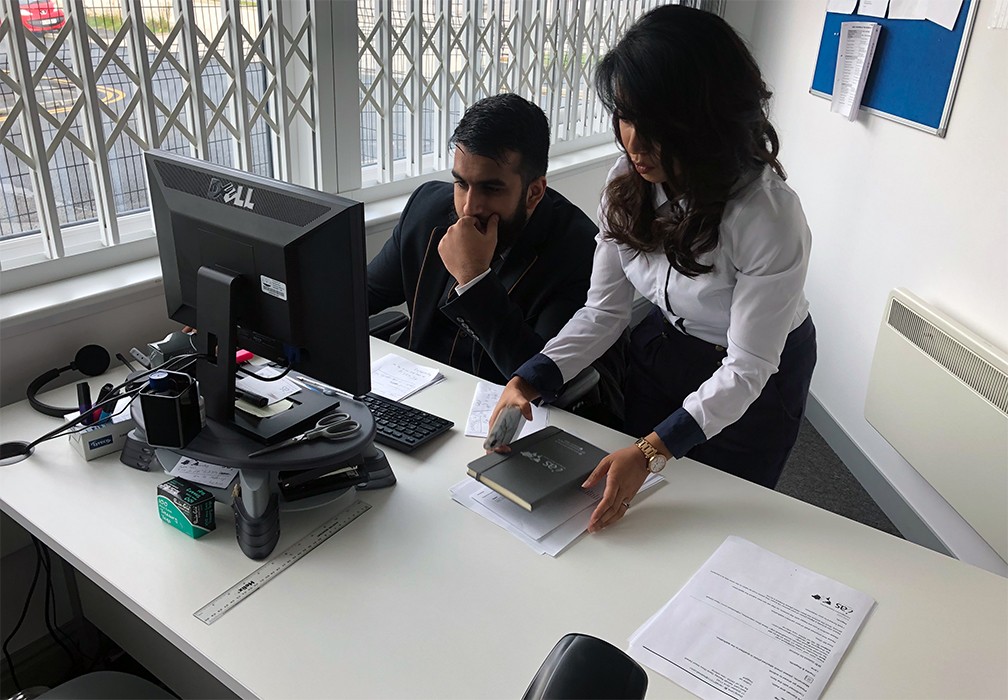Spain Dual Citizenship
Foreign nationals from countries having cultural and historical ties with Spain might be eligible to apply for Spanish dual citizenship. If you are a Sephardic Jew, you might also obtain Spanish dual citizenship.
If you are looking for information or advice regarding how to obtain dual citizenship in Spain from the US, whether you are eligible, or what other requirements you must meet, call us today on +1 844 290 6312 to explore your options with our team of expert immigration lawyers and advisers.
What is Dual Citizenship in Spain?
The legal basis for dual citizenship in Spain is established by the Spanish nationality laws, which deal with the acquisition, loss, and restoration of citizenship status in the country.
According to these laws, there are specific conditions under which individuals can apply for and retain dual nationality in Spain. They also specify residency requirements, language proficiency, and cultural integration tests necessary for acquiring Spanish citizenship.
In addition, there are also various bilateral and multilateral treaties and international agreements in place which impact Spain’s dual citizenship policy. Such treaties and agreements usually involve a reciprocal approach with concerned countries regarding how dual nationals are recognized and treated, including taxation, military service obligations, and social security benefits.
Page Contents
- What is Dual Citizenship in Spain?
- Does Spain Allow Dual Citizenship With the US?
- Spain’s Sephardic Jew Citizenship Programme
- Benefits of Dual Citizenship in Spain
- How to Get Dual Citizenship in Spain?
- Required Documents for Dual Citizenship in Spain
- Processing Times and Fees for Obtaining Spanish Dual Citizenship
- What Happens If My Dual Citizenship in Spain Is Approved?
- What Happens If My Application Is Rejected?
- Do I Need to Reside in Spain to Obtain Dual Citizenship?
- How Can Total Law Help
- FAQ
Does Spain Allow Dual Citizenship With the US?
Spain has a clear policy in place allowing only citizens belonging to certain countries as well as an ethnic group (i.e. Sephardic Jews) to have Spanish dual citizenship. If you are a citizen of any of the countries mentioned below, you may be eligible to retain your original citizenship even after becoming a Spanish citizen by residency, descent, or marriage.
These countries are:
- Andorra
- Argentina
- Bolivia
- Brazil
- Chile
- Colombia
- Costa Rica
- Cuba
- Dominican Republic
- Ecuador
- El Salvador
- Equatorial Guinea
- France
- Guatemala
- Honduras
- Mexico
- Nicaragua
- Panama
- Paraguay
- Peru
- Portugal
- Puerto Rico
- The Philippines
- Uruguay
- Venezuela
The above countries have a special agreement with Spain allowing their citizens to retain their original citizenship even after becoming a Spanish citizen. People from all other countries must renounce their nationality to become a Spanish citizen.
Although the US does not feature on the above list, it might be possible for certain US nationals to keep their US passport even after becoming Spanish citizens.
For example, if you are originally a Latin American national but also have citizenship in the US, you can use your Latin American passport to obtain dual citizenship in Spain (provided you fulfill all other Spanish citizenship requirements).
Similarly, people who have been born in Puerto Rico on or after January 13, 1941 and are subject to the US jurisdiction, are US citizens at birth. However, since Puerto Rico is one of the countries featured in the list above, Puerto Ricans are allowed to obtain dual citizenship in Spain.
In addition, as mentioned in the beginning of this article itself, Sephardic Jews are allowed to have dual citizenship in Spain. So, if you can prove your Sephardic origin, it is possible for you to enjoy dual citizenship in Spain as well as the US.
On the other hand, if you are a Green Card holder in the US but are actually a citizen from any of the countries mentioned above, you are eligible to claim dual citizenship in Spain.
Spain’s Sephardic Jew Citizenship Programme
Sephardic Jews are descendants of the Jews who lived in Spain and Portugal from at least the later centuries of the Roman Empire. They fled their home countries due to persecution and mass expulsion in the last decades of the 15th century and settled elsewhere in the world.
On June 11, 2015, the Spanish Parliament approved an act granting Spanish Citizenship to Sephardic Jews. The law, which came into effect on October 1, 2015, made the acquisition of Spanish citizenship possible for Sephardic Jews without renouncing their current citizenship and without requiring residency in Spain.
Apart from proving that you are a member of the Sephardic Jewish sect, you will also need to establish that your ancestors were part of the Jewish diaspora that began in Spain or Portugal in 1492, to claim dual citizenship in Spain through this route.
When passing the law, the Spanish Ministry of Justice announced that those who are interested to acquire Spanish citizenship via this route must formalize their application within three years from the date when the law became effective (i.e. October 1, 2015), with a provision for extending that deadline by another year if approved by the Council of Ministries.
The application window was eventually shut in 2021, but for applicants who initiated their application process before October 1, 2019 (and submitted all necessary evidence by September 1, 2021) but did not yet hear from the Ministry of Justice, their application might still be valid and under further consideration.
In addition, when the Spanish Parliament passed the law, it was mentioned that the law was to remain in effect indefinitely for extraordinary cases or humanitarian reasons. Consult our experienced immigration law team immediately on +1 844 290 6312 if you have reason to believe that your case falls into either of that category.

Benefits of Dual Citizenship in Spain
Dual citizenship application in Spain is a complex one and time-consuming at its best. However, the rights and benefits of a dual citizenship often bypass the challenges in the way. With a dual citizenship in Spain, you can:
- Live, work and study in Spain for an indefinite period
- Enter and exit the country freely
- Enjoy the freedom of movement in the EU
- Travel visa-free to 193 countries with a Spanish passport
- Enjoy the same rights and privileges as enjoyed by Spanish citizens by birth, including access to public healthcare, social security benefits, right to vote, and right to run for a public office
- Pass on your dual nationality to your children and immediate family members
- Maintain a link with your country of origin as a dual citizenship allows you to retain your original citizenship
- Enjoy double diplomatic protection overseas, i.e. both from Spain and your country of origin
However, do keep in mind that there are certain pitfalls of having a dual citizenship. You might have to pay certain taxes in both as well as be subject to laws of both countries.
Dual nationality might also impede your traveling abroad. For example, if one of your countries is on bad terms with another country, you might not get a visa. You can also face severe issues if your two countries get involved in war with one another.
How to Get Dual Citizenship in Spain?
Technically, a dual citizenship application is actually an application to obtain Spanish citizenship. If you are successful in obtaining Spanish citizenship, whether or not you need to renounce your erstwhile nationality will depend on factors already discussed in this article (i.e. your current nationality or ethnic status).
A dual citizenship application in Spain can be made both online or in person. If you wish to apply online, you will need to submit the application through the Spanish government’s SEDE electrónica platform. Alternatively, you might apply in person at a civil registry.
Before you can submit your application, you will need to pass a couple of tests. The first one is DELE or the Spanish language test. You will need to achieve at least A2 level proficiency in Spanish as per the CEFR standards. If your mother tongue is Spanish (e.g. citizens from Spanish-speaking Latin American countries) or you have attended a school or high school in Spain, you will be exempted from the DELE A2 test.
All applicants must, however, pass the CCSE test, which is a Spanish citizenship examination testing your knowledge of the Spanish constitution and the country’s social and cultural practices.
There are accredited centers in Spain for both tests. If you are a Sephardic Jew applying for dual citizenship in Spain from your home country, you can take the tests at the Spanish embassy or consulate there.
In exceptional circumstances, it is possible to obtain a total waiver from the Spanish authorities, which you must submit with your dual citizenship application in lieu of DELE A2 and CCSE qualifying certificates. It is also possible to obtain a partial waiver which will allow you to take the tests in an adapted form, taking into account your disability or incapacity to take the tests in their original forms.
It takes approximately three months to receive the test results. Please plan accordingly so that you have your test results with you in time to make your dual citizenship application.
Required Documents for Dual Citizenship in Spain
You will be required to submit the following documents with your dual citizenship application in Spain. Please note that the concerned authorities might also ask you for additional documents depending on your circumstances.
The required documents include:
- Your current, valid passport (if you already have dual nationality in the US as well as any of the Latin American countries, please use your Latino passport for acquiring dual citizenship in Spain)
- Your Foreigner Identity Number in Spain, also called “Número de identidad de extranjero” or NIE (a unique number assigned to foreigners requiring identification in the country for professional, economic or social reasons)
- Your birth certificate
- Documents proving your claim to Spanish citizenship depending on your chosen pathway (e.g. by descent, by marriage, or by residency)
- Documents proving your legal residence status in Spain (you will need to prove at least two years of continuous residency in the country unless you are of Sephardic Jew origin)
- Documents proving your Sephardic status and your special connection to Spain
- Criminal background check certificate. For Sephardic Jews, this certificate must be issued by the relevant authorities in their home country (e.g. the FBI for Sephardic Jews in the US)
- Health insurance (your insurance must cover all risks covered by Spain’s public healthcare system)
- Marriage, civil partnership or divorce certificates, where applicable
- Document confirming that you have passed the DELE A2 and CCSE exams
- Any total or partial waiver documents if you are not required to take the DELE A2 and CCSE tests
- Proofs of subsistence
- Application fee payment receipt

Processing Times and Fees for Obtaining Spanish Dual Citizenship
The Spanish government might take up to 12 months to process your application. However, this timeline often stretches beyond that legally stipulated period. It is not unusual for the concerned authorities to take two to three years to process dual citizenship applications in Spain.
The non-refundable, application processing fee varies from €60 to €100. However, depending on your circumstances, the cost may go up (e.g. if you are required to submit additional documents or need to provide certified translated copies of your original documents that are not in Spanish).
What Happens If My Dual Citizenship in Spain Is Approved?
If your dual citizenship application is approved, you will need to take an oath of obedience to the Spanish constitution and laws at the Civil Registry or before a notary within six months. During this oath-taking ceremony, you will also have to swear your loyalty to the King of Spain.
In addition, you will have to enter your new status as a dual national Spanish citizen in the Spanish Civil Register within the stipulated deadline which is usually six months. Failing to do so might result in losing your dual citizenship status in Spain.
Moreover, dual citizenship holders must use their Spanish passport if they travel abroad within three years of becoming a citizen in Spain. Otherwise, the nearest Spanish consulate might begin a withdrawal process.
What Happens If My Application Is Rejected?
If you do not get to hear anything for 12 months after submitting your application, it might have been rejected due to administrative inaction (known in Spain as “silencio administrativo.”).
In such cases, you can lodge an appeal with the Spanish Ministry of Justice (or with your nearest Spanish consulate if you are outside Spain and applying for dual nationality as a Sephardic Jew). Usually, a response is given within three to four months from the date of filing your appeal.
Do I Need to Reside in Spain to Obtain Dual Citizenship?
If you are a citizen of a Latin American country, or that of Andorra, The Philippines, Equatorial Guinea, Portugal or France, you will be eligible to apply for dual citizenship only after living in Spain as a resident, lawfully and continuously, for at least two years.
However, if you are a Sephardic Jew, you can apply for dual citizenship in Spain from your home country.
How Can Total Law Help
Dual citizenship application in Spain involves navigating through a maze of laws, policies, procedures, and “what-if” situations. Although the benefits of having dual citizenship outweigh the hurdles in acquiring the same, please prepare yourself to embark on a tedious journey of arranging documentary evidence and proving to relevant authorities the justifications of your claim to Spanish citizenship.
Total Law can help. Our team of sympathetic immigration lawyers have the required expertise to assist you, regardless of your personal circumstances or the complexity of your case.
If you are seeking overall advice with your dual citizenship application in Spain from the US or you would like an immigration expert to complete your application on your behalf, we are here for you. We also offer document and application checking services if you just need a final check to confirm that your documents and application adhere to Spanish citizenship laws.
To know more about the services we provide and how we can help you, please call us on +1 844 290 6312 today to speak to our team of legal advisers.
Advice Package
Comprehensive immigration advice tailored to your circumstances and goals.
Application Package
Designed to make your visa application as smooth and stress-free as possible.
Fast Track Package
Premium application service that ensures your visa application is submitted to meet your deadline.
Appeal Package
Ensure you have the greatest chance of a successful appeal. We will represent you in any case.

The Advice Package
During this untimed Advice Session with our professional immigration lawyers in London, you will receive our comprehensive advice, completely tailored to your needs and your situation.

The Application Package
With our Application Package, your dedicated immigration lawyer will advise you on your application process and eligibility. Your caseworker will then complete and submit your forms to the Home Office on your behalf.

The Fast Track Package
Our Fast-Track Application Package is a premium service for those who need to submit their application in time with their deadlines. Your case will become a top priority for our lawyers and you will benefit from our highest-quality services.

The Appeal Package
By choosing our Appeal Package, you can rely on our lawyers’ legal knowledge and experience to ensure you have the highest chance of a successful appeal. We will also fully represent you in any hearings/tribunals.
Related pages for your continued reading.
FAQ
Yes. Spain usually allows its citizens to pass on dual citizenship to their direct descendants.
Yes. You can apply for a Spanish passport after becoming a citizen (i.e. after participating in the oath-taking ceremony and registering yourself in the Spanish Civil Register).

